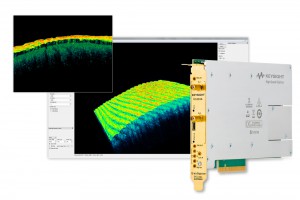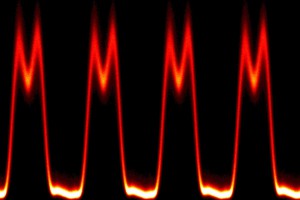NeuDrive, the bidding to commercial organic electronics production technology in the UK, has completed the acquisition of a portfolio of organic semiconducting material patents and the FlexOS trade mark from CPI Innovation Services (CPIIS), the commercial arm of the government-funded Centre for Process Innovation (CPI). As part of the deal NeuDrive has taken licences relating to organic thin-film transistor technology ...
Device R&D
Scientists make breakthrough in pulsed laser design
Scientists from the University of Southampton have developed a technique to create high power pulsed lasers used in telecommunications and metrology which are potentially more energy efficient. The new method developed by researchers from the University’s Optoelectronics Research Centre (ORC) works on a fundamentally different principle to existing pulsed lasers. Any application that requires optical pulses typically needs waveforms of ...
IBM uses phase change to build neuromorphic IC
IBM has used phase change memory to build network of 913 neurons with 165,000 inter-connections, reports the MIT Technology Review.
Bristol University finds a way to feel holograms
A way of feeling a holographic image using haptic feedback has been developed at Bristol University.
Government funds £1m space R&D prize
Government funded defence research agency, the Defence Science and Technology Laboratory (Dstl), is running a £1m research competition inviting proposals from UK-based companies for technology which will offer affordable space systems for communications and surveillance. The aim of the government-funded research will be to develop technologies in the UK that could provide “a step increase in capability or a substantial ...
DNA sequencer pioneer awarded Faraday Medal
Professor Chris Toumazou founder and CEO of DNA Electronics, the developer of semiconductor DNA sequencing technology, has been awarded the UK Institution of Engineering and Technology (IET)’s highest honour, the 2014 Faraday Medal. The award recognises Professor Toumazou’s pioneering work in the invention of semiconductor DNA sequencing and the potential impact it can have on healthcare. A feature of the technology is that being semiconductor-based, unlike ...
Ultrasound pioneer to get Sir Frank Whittle medal
Ultrasound imaging pioneer Professor Peter Wells is to receive the Sir Frank Whittle medal from the Royal Academy of Engineering for his achievements in medical engineering over six decades. Wells, now research Professor in the School of Engineering at Cardiff University, worked on ultrasonic surgery and he developed a novel ultrasonic probe for the safe treatment of Meniere’s disease and showed that there was a ...
OpenStax digital textbooks learn as you learn
Tired of learning from a dusty old textbook? Try a book that learns from you. Students in Houston, Texas, are about to get their hands on the first digital schoolbooks that use artificial intelligence to personalise lessons.
Kilobot swarm at Harvard
A self-organising thousand-robot swarm has been made at Harvard. Following simple programmed rules, the autonomous robots arranged themselves into vast, complex shapes.
UK universities discover ‘new’ quantum wells
UK researchers have discovered a new two-dimensional quantum well mechanism which they claim can emit tunable light at terahertz frequencies with “unprecedented efficiency”. The researchers, from the University of Southampton and Imperial College London, found that quantum wells, 2D nanostructures formed of several layers of semi-conductor alloys placed on top of each other like a sandwich, can enhance light emission ...
 Electronics Weekly Electronics Design & Components Tech News
Electronics Weekly Electronics Design & Components Tech News









